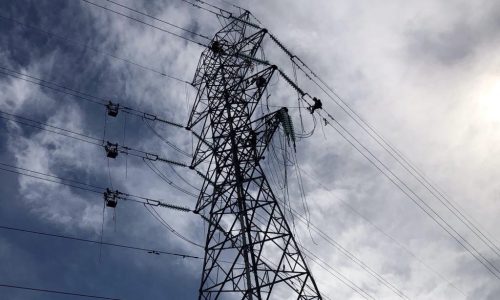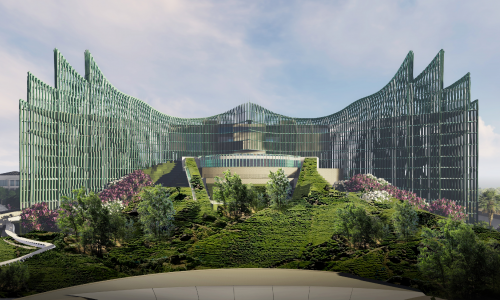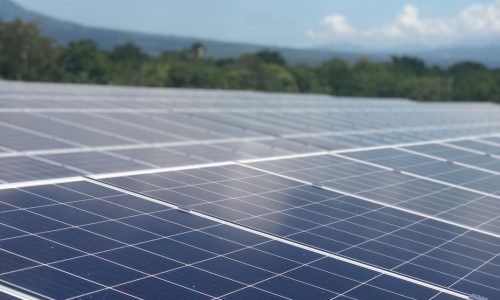PT Pembangkit Listrik Negara (PLN) (Persero) will develop a nuclear power plant through its subsidiary PLN Indonesia Power (PLN IP) in cooperation with NuScale Power from the US and several other entities.
NuScale Power Corporation is a publicly traded US company that designs and markets small modular nuclear reactors.
PLN IP will conduct a study on small-scale nuclear modular reactor technology in collaboration with the Coordinating Ministry for Economic Affairs, the National Research and Innovation Agency (BRIN), the United States Trade and Development Agency (USTDA), and the US-based energy company, NuScale Power.
Later, a small-scale modular nuclear reactor development study will be carried out in Bengkayang Regency, West Kalimantan in 2030.
This reactor is a sophisticated nuclear reactor that has a power capacity of up to 300 MW. The reactor is part of the design of a new generation of Nuclear Power Plants (NPP) that has been developed in several countries.
Efforts to transition to renewable energy
Bernardus Sudarmanta, Director of Business Development and Commerce at PLN IP, said that the small-scale modular nuclear reactor is part of the company’s efforts to transition to renewable energy.
“To achieve the target of net zero emissions in 2060 requires careful preparation, as well as collaboration with various parties so that the energy transition goes well,” he said, on August 16, 2023.
Currently, PLN IP already has an energy transition roadmap up to 2060 to achieve net zero emissions. The development of green energy will continue to be encouraged by careful planning such as using nuclear energy.
Bernardus explained that careful preparation is needed in working on green energy projects to ensure compliance with applicable regulations and permits.
“The challenge is not easy, so the cooperation of various parties is needed so that this transition goes well and provides great benefits for the community,” he said.
According to him, synergizing with these strategic partners will help create a sustainable energy future.
“PLN IP is currently intensively making efforts to accelerate the energy transition, in which projects are launched by inviting strategic partners who have the same vision,” he said.
Progress of nuclear energy development in Indonesia
Currently, Indonesia already has two small-scale nuclear power plants that are used by scientists for research and for development. There are two PLTNs, one at BATAN (National Nuclear Energy Agency) in Bandung with a power of 60 MW and one in Serpong with a power of 2 MW.
However, until now Indonesia has not utilized nuclear as a PLTN to fulfill electricity supply, but it has been in Indonesia for 50 years.
According to BATAN, feasibility studies have been carried out on the use of nuclear power in several regions such as Jepara, Bangka and West Kalimantan. This area was chosen because it is not prone to earthquakes.
Djarot Sulistio Wisnubroto, former Head of the National Nuclear Energy Agency (BATAN) of the Republic of Indonesia (2012-2018) said that nuclear power plants have positive and negative sides that cannot be ignored. On the positive side, it has low carbon emissions, and does not depend on certain weather and conditions. On the negative side, the psychological impact on society is due to imagining nuclear weapons and worrying about leaks.
According to him, so far the main factor is the community’s concern. However, the last survey in 2017 stated that 77% of respondents supported nuclear power plants.
Meanwhile, Zaki Su’ud, an expert from the Indonesian Nuclear Society Association (HIMNI) assures that the PLTN is not as bad as it seems. The use of nuclear power is actually suitable for Indonesia to use generation 3 plus or 4, because it has passive safety that can overcome potential disasters such as Chernobyl and Fukushima.









